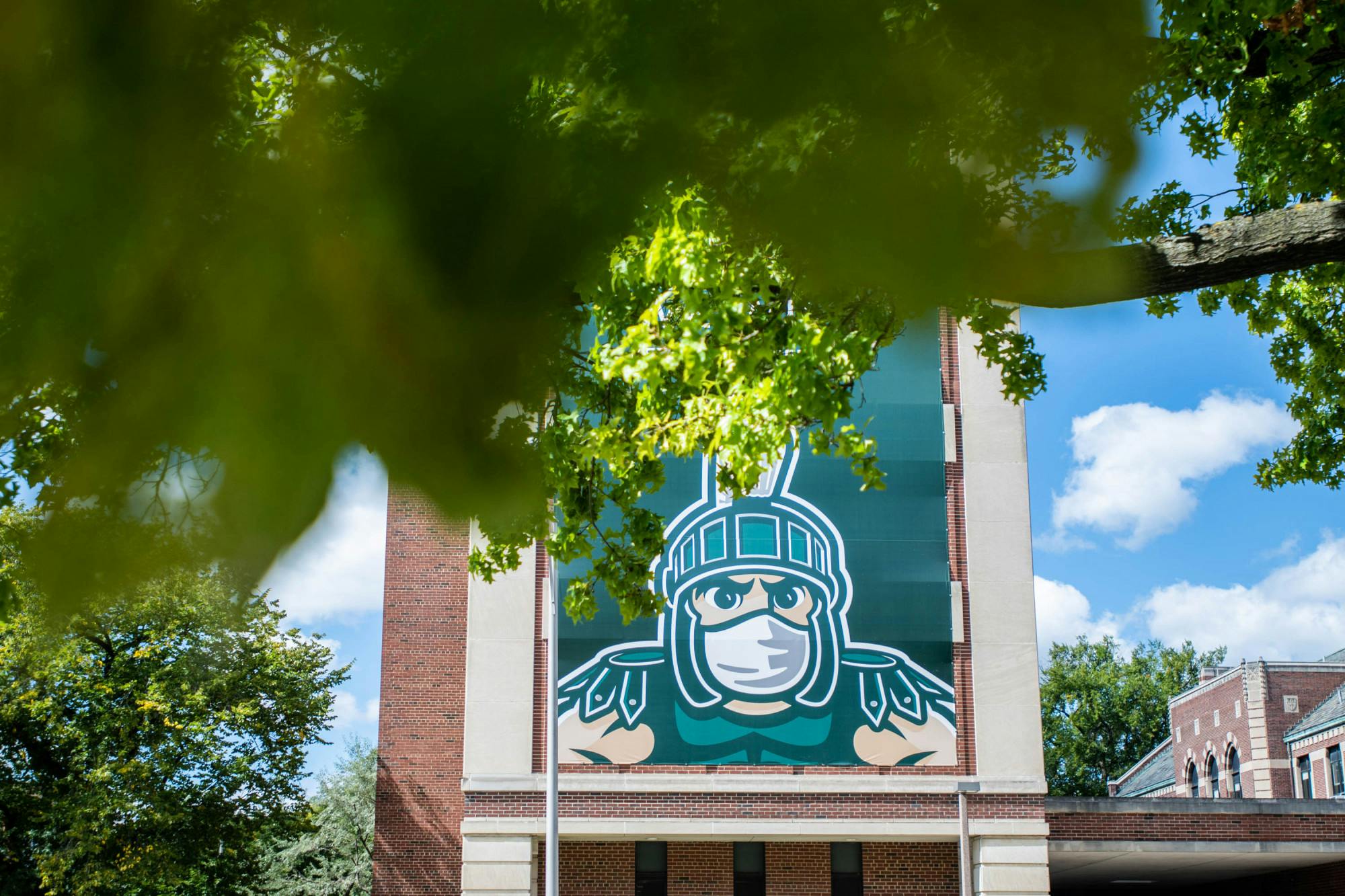To be considered within close contact with someone who tested positive with COVID-19, you must have been within 6 feet of them for 15 minutes.
In an email to the individual department chairs, the Office of the Provost stated that MSU’s high vaccination rate and its mask mandate, combined with the efforts of the Triage Team and “improvements in our air filtering” provide sufficient evidence that the university is “able to change course” on its notification polities.
University spokesperson Dan Olsen said the notification policy “caused more confusion among the campus community” and that the updated COVID-19 dashboard provides all the necessary information for faculty to keep track of any health risks.
While the Office of the Provost was not available for comment at the time of publication, a spokesperson for MSU Communications confirmed that new HVAC units and air filtration mechanisms have been installed across campus, although some faculty members have raised questions about the quality of ventilation in some of the university’s oldest buildings, nearly all of which are not air conditioned.
The response from faculty was instantaneous and overwhelmingly negative -- MSU’s Graduate Employee Union and the Union of Non-Tenure Track Faculty both posted statements this afternoon expressing their disapproval of the new contact tracing notifications, and many individual faculty members tweeted their concerns.
ReclaimMSU, an online organization that describes itself as an “alliance of students, faculty, staff, and alumni demanding a culture of transparency and accountability on campus," spent the day amplifying posts made by faculty members and unions and furthering the dialogue surrounding the policy change.
Critics of the new policy have been quick to point out that while the vaccine and mask policies are important, they likely don’t cover all the bases.
In the vaccine verification form students were required to fill out in August, the only information required was the type of shot received and the dates on which each dose was administered. The form had an option to fill in the vaccine’s lot number. It’s unclear how MSU went about verifying, if at all, these form submissions reflected people who were all truly vaccinated and that the responses were not populated with false information.
The university also recently stated that it received approximately 4,000 requests for vaccine exemptions, 2,051 of which have been approved as of Saturday, Dan Olsen said. There have been 162 denied requests, and 1,700 in review.
Some faculty members said they believe the lack of verification alone is grounds for tighter restrictions. Others point out that COVID-19’s delta variant is a highly contagious airborne virus, and that many classrooms aren’t large or well-ventilated enough for anyone to be considered an “informal contact” if one person in a class tests positive.
Faculty members remain concerned about their health and the health of those around them. Susan Masten, a professor of environmental engineering, is 64 years old. She said that both she and her husband are considered to be at high risk of contracting COVID-19, even though they are vaccinated.
When asked if she felt safe teaching in-person classes knowing that she would not be contacted about each positive case amongst her students, her answer was simple: “Absolutely not.”
Other faculty members have taken to social media to express their concerns about the health of themselves or their families, citing the risks of being immunocompromised and having children who are too young to be vaccinated. Currently, only people 12 years or older can be vaccinated.
Masten said, as a professor who teaches on air pollution, she does not feel that the rule’s reliance on the six-feet apart for 15 minutes policy is valid, citing her own expertise on the matter.
"Just think about it,” Masten said. “You’re sitting in a classroom. … When you breathe out, you breathe out carbon dioxide, but you also breathe out bacteria, potentially virus particles, into the air.”
Those particles in the air don’t just stay within a person’s six-foot bubble, she said, but rather they travel around an enclosed space like a small classroom and can easily reach other people outside of a six-foot radius.
Masten said she believes that the unpredictable nature of these exposures warrants tighter regulations and more sharing of information, not less.
Another source of concern was the way the announcement was executed. Joshua Nahum, a non-tenure-track professor in the computer science department, said that instead of the announcement from the Provost’s office being emailed to every individual instructor, it was sent only to department chairs and academic supervisors who were then responsible for disseminating the information down the chain of command.
Support student media!
Please consider donating to The State News and help fund the future of journalism.
Masten expressed a concern the information may not have been received in a timely manner or some faculty may have slipped through the cracks.
“If their department chair had been in a meeting, or something like that, they would not have gotten it,” Masten said.
Beyond the safety risks posed by less case reporting, some faculty members feel shortchanged by their supervisors in wake of changes to COVID-19 policies.
One professor, who requested anonymity out of concerns for employment, said there’s a lot of “disillusionment, anger, sadness,” amongst faculty and students regarding the frequent changes in university policy and lack of clear communication about COVID-19.
“If everything had been laid out very clearly from the beginning of the semester, before we stepped into the classroom, I think a lot of us would not feel the way we do right now,” they said.
The professor said they felt disappointed yet not surprised by the policy change and expressed concern for the wellbeing of their children, who are too young to be vaccinated.
In response to the university’s assertion that the notifications of a positive case in the classroom caused confusion, the professor laughed.
“I’m a professor,” they said. “There’s never too much information for professors. The confusing part was that nothing was communicated to us.”
Nahum feels like the decision reflects the university “doesn’t entrust staff and students to make decisions about their own health.” He said the change in policy takes away the autonomy of choice from people who get exposed to the virus.
Although he is not considered high risk, Nahum empathizes with his colleagues who are, and said he will continue to go grocery shopping for his immunocompromised coworkers.
How this new policy will affect MSU’s COVID-19 situation remains to be seen, but it's certain it has its fair share of controversy.
Editor's note: This article has been updated to reflect that the University's contact tracing methods have not been changed, but rather the notification system because it caused confusion. It has also been updated to reflect that "close contacts" constitute being within 6 feet of a person for 15 minutes.
Discussion
Share and discuss “MSU to no longer inform professors of all positive COVID-19 cases in the classroom” on social media.







